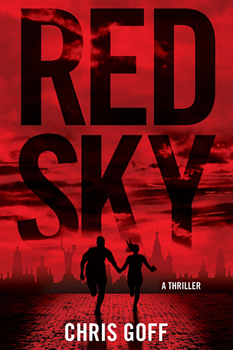

May 29 – June 4: “Do publishers fact-check?”
 Do publishers fact-check – or is that the author’s job? This week ITW members Jean Harrington, Elena Hartwell, Ovidia Yu, Alan Drew and Christine Goff will discuss who’s ultimately responsible.
Do publishers fact-check – or is that the author’s job? This week ITW members Jean Harrington, Elena Hartwell, Ovidia Yu, Alan Drew and Christine Goff will discuss who’s ultimately responsible.
~~~~~
 Writing advertising copy for Reed & Barton, Silversmiths, was Jean Harrington’s first job. Then for 17 years, she taught English literature at Becker College in Worcester, Massachusetts. After moving to Naples, she began dreaming of murder—and the award winning, tongue-in-cheek Murders by Design Series is the result. On September 1, Murder on Pea Pike (What happens when a hot property meets a cold corpse?), the first book in Jean’s new Listed and Lethal Series will be released.
Writing advertising copy for Reed & Barton, Silversmiths, was Jean Harrington’s first job. Then for 17 years, she taught English literature at Becker College in Worcester, Massachusetts. After moving to Naples, she began dreaming of murder—and the award winning, tongue-in-cheek Murders by Design Series is the result. On September 1, Murder on Pea Pike (What happens when a hot property meets a cold corpse?), the first book in Jean’s new Listed and Lethal Series will be released.
 Ovidia Yu was born in, lives in and writes about Singapore. After a happy childhood spent reading, drawing comics and dramatizing stories, she dropped out of medical school because while medicine is fascinating, she didn’t want to be a doctor. One of Singapore’s most prolific playwrights, Ovidia has had over 30 plays produced. The Frangipani Tree Mystery is the first book in her Crown Colony Series.
Ovidia Yu was born in, lives in and writes about Singapore. After a happy childhood spent reading, drawing comics and dramatizing stories, she dropped out of medical school because while medicine is fascinating, she didn’t want to be a doctor. One of Singapore’s most prolific playwrights, Ovidia has had over 30 plays produced. The Frangipani Tree Mystery is the first book in her Crown Colony Series.
 Elena Hartwell spent years in the theater before turning her dramatic skills to fiction. She writes the Eddie Shoes Mystery Series. One Dead, Two to Go, Two Heads Are Deader Than One, and Three Strikes, You’re Dead (launching April 15, 2018). According to Peter Clines, Eddie Shoes is “the most fun detective since Richard Castle stumbled into the 12th precinct.” Elena lives in Twin Peaks, called North Bend, Washington in the real world. The perfect place for a writer, especially one who kills people for a living.
Elena Hartwell spent years in the theater before turning her dramatic skills to fiction. She writes the Eddie Shoes Mystery Series. One Dead, Two to Go, Two Heads Are Deader Than One, and Three Strikes, You’re Dead (launching April 15, 2018). According to Peter Clines, Eddie Shoes is “the most fun detective since Richard Castle stumbled into the 12th precinct.” Elena lives in Twin Peaks, called North Bend, Washington in the real world. The perfect place for a writer, especially one who kills people for a living.
 Alan Drew is the author of the critically acclaimed debut novel, Gardens of Water. He is a graduate of the Iowa Writers’ Workshop. An associate professor of English at Villanova University where he directs the creative writing program, he lives near Philadelphia with his wife and two children.
Alan Drew is the author of the critically acclaimed debut novel, Gardens of Water. He is a graduate of the Iowa Writers’ Workshop. An associate professor of English at Villanova University where he directs the creative writing program, he lives near Philadelphia with his wife and two children.
 An award-winning author and Rogue Woman, Chris Goff‘s recent international thriller, RED SKY, hits the stands June 13th. Set in Ukraine and Asia, Agent Raisa Jordan tests the boundaries of diplomacy as she races to prevent the start of a new Cold War. Catherine Coulter had this to say: “Breathtaking suspense, do not miss Red Sky.” Goff’s series debut, DARK WATERS, was dubbed “a sure bet for fans of international thrillers” by Booklist, and nominated for the 2016 Colorado Book Award and Anthony Award for Best Crime Fiction Audiobook.
An award-winning author and Rogue Woman, Chris Goff‘s recent international thriller, RED SKY, hits the stands June 13th. Set in Ukraine and Asia, Agent Raisa Jordan tests the boundaries of diplomacy as she races to prevent the start of a new Cold War. Catherine Coulter had this to say: “Breathtaking suspense, do not miss Red Sky.” Goff’s series debut, DARK WATERS, was dubbed “a sure bet for fans of international thrillers” by Booklist, and nominated for the 2016 Colorado Book Award and Anthony Award for Best Crime Fiction Audiobook.
- LAST GIRL MISSING with K.L. Murphy - July 25, 2024
- CHILD OF DUST with Yigal Zur - July 25, 2024
- THE RAVENWOOD CONSPIRACY with Michael Siverling - July 19, 2024
